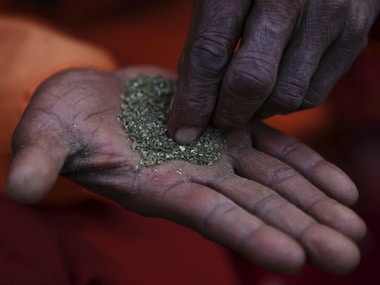The United Nations has recognised 26 June as the International Day against Drug Abuse and Illicit Trafficking. The observance of the day is an important initiative to ensure sustainable development globally, and to advocate for measures to tackle drug abuse and trafficking. [caption id=“attachment_6880761” align=“alignleft” width=“380”]
 Representational image. Reuters[/caption] The theme of this initiative for 2019 is
“Health for justice, justice for health.” The United Nations has sought to emphasise that tackling drug abuse leads directly to both health and justice, which are two sides of the same coin. Why is this initiative important? Drug trafficking is a major challenge across the world, especially in developing countries. In nations where poorer people are desperate for monetary stability and security is lax, they are likely to fall prey to this network of crime. Drug trafficking hinders human development by preventing education and increasing crime. By observing an international day to tackle this issue, the United Nations seeks to bring international attention to the severity of this issue, and provides a platform for advocacy. How effective has it been? This day is championed by the Commission of Narcotic Drugs, one of the commissions of the United Nations Economic and Social Council (ECOSOC). In 2009, member states of this commission adopted the “Political Declaration and Plan of Action on International Cooperation towards an Integrated and Balanced Strategy to Counter the World Drug Problem,” which details goals and targets to control illicit trafficking of drugs. Additionally, in March 2019, these member states signed a Ministerial Declaration to reaffirm their commitment to this cause and their sustained efforts to tackle it.
The United Nations has sought to emphasise that tackling drug abuse leads directly to both health and justice, which are two sides of the same coin.
Advertisement
End of Article


)

)
)
)
)
)
)
)
)



